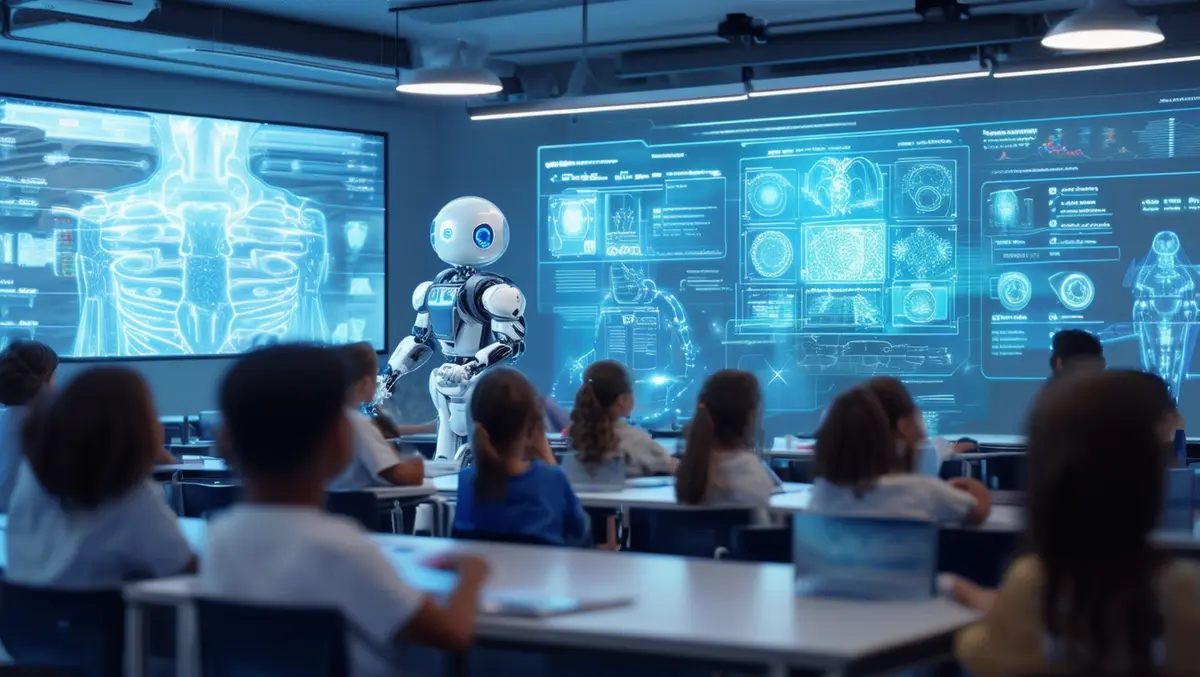
Calls intensify for AI integration in national curriculum
Calls for the integration of artificial intelligence (AI) into the national curriculum have intensified, as experts highlight the importance of equipping future generations with the necessary skills to thrive in what is a rapidly evolving digital landscape.
Founder of Tech Women Today, Cecilia Harvey, stressed the importance of including AI education at various stages of the formal school system, arguing that it is no longer a luxury but a necessity.
"Artificial intelligence is no longer a distant dream or a speculative buzzword; it's the beating heart of modern innovation," Harvey told TechDay.
She believes that AI is revolutionising industries across the board, from healthcare to finance and education, driving efficiencies, and creating new possibilities.
Harvey, who has witnessed the transformative power of AI firsthand as a tech founder, argues "it is time to bring this revolution into classrooms" to empower Generation Alpha - the cohort born from 2010 onwards.
As technological advancements accelerate, the nature of the workforce is undergoing a seismic shift. According to the World Economic Forum, by 2025, machines and algorithms will create 133 million new roles globally but will also displace 75 million jobs. The skills needed to navigate this transformed job market are predominantly centred around digital and data literacy, including AI, machine learning, and data analysis.
Despite existing investments by the government in generative AI tools to assist teachers, Harvey questions whether current efforts sufficiently address the need to prepare children for a future driven by AI.
"The current computing curriculum allows for flexibility, aiming for all pupils to gain an understanding of the principles of computer science but avoiding over-prescription through the risk of content becoming quickly outdated," she said.
Though programming and algorithms are introduced at key stage 3, Harvey argues that these measures only lay the foundations for further knowledge and more robust action is necessary.
Harvey's key strategies to effectively integrate AI into the curriculum:
Early introduction to AI: Introduce foundational AI concepts to young children as part of basic education, much like maths and language. Understanding algorithms and pattern recognition early can cultivate curiosity and lay the groundwork for advanced learning.
Interdisciplinary learning: AI should extend beyond computer science classes. Its applications span fields such as biology, physics, art, and literature. Integrating AI across disciplines can provide a holistic educational experience that underscores its real-world relevance.
Project-based learning: Encourage hands-on projects involving AI. This approach enriches theoretical knowledge while enhancing problem-solving skills and creativity. For example, students could develop simple AI models to tackle local community issues, fostering social responsibility alongside technical acumen.
Teacher training and resources: Equip educators with the necessary tools and knowledge to deliver effective AI education. Professional development programs focused on AI and providing access to online platforms, resources, and AI tools are crucial.
Collaboration with industry: Partnerships between educational institutions and tech companies can bridge theoretical and practical knowledge. Internships, mentorship programs, and collaborative projects offer students valuable insights and real-world experiences.
Harvey's call to action is clear: "The integration of AI into the national curriculum is not a luxury; it's a necessity. By embracing this change, we can ensure that Generation Alpha is not just prepared for the future but is actively shaping it."
"This is a call to action for educators, policymakers, and tech leaders to come together and reimagine education for the AI age."
As AI continues to reshape the world, the push to integrate it into educational systems will likely gain momentum, heralding a new era of learning that aligns with the times.


